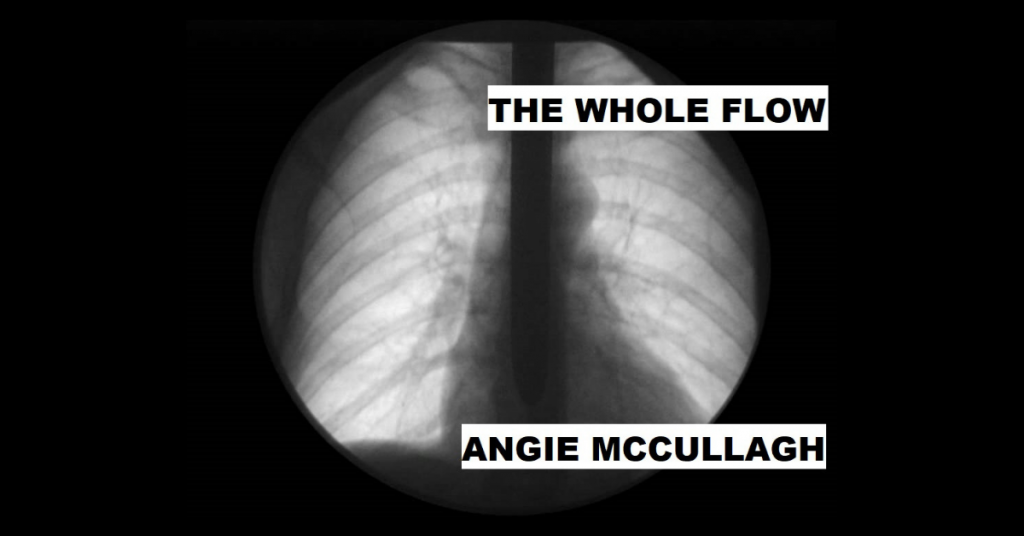
THE WHOLE FLOW by Angie McCullagh
I try to become liquid like she told me. I pour myself into heavy-bottomed glasses and over nubby sofas and down rucked, tan chests. I puddle onto the floor and sometimes throw myself into the wind only to splash back on bug-splattered windshields.
To survive, she said, you have to learn to go with it. But my mother’s advice is bad. I learn this when my boy is first diagnosed and I think we can do it, I am flexible, Watch me drain my whole body into his syringes and make him better. I will do anything, anything at all.
The first night in the hospital I settle, like a pond, around his little frame and burble his favorite songs. I don’t sleep, not even for a second. In the morning his dad visits and says to me, you look like shit.
He sits with our boy while I shower in the bathroom with no soap and hold the safety bar to keep from slipping down the drain.
*
We are back at home where his dad doesn’t live. Wind shakes the walls, roaring that I should’ve prevented my boy’s illness and I dissolve in my own salty tears. It is darkest December, but globules of insulin gleam from needle tips, reflected in multi-colored holiday lights.
I’m hurting him. He yells and cries. I’m so sorry, I say before every poke, my heart pounding like a shaggy, water-logged thing.
After a few months, he stops crying, only bites his bottom lip hard and looks away.
*
She comes to visit with her tequila in a peroxide bottle and miles of beaded leather wrapped around her wrists. It’s too bad he got sick but you will adjust. Life is fluid.
She is her own undertow and I splash wildly, finding that fight is a solid object to hold onto.
When she watches the boy so I can take a run, then lets his blood sugar drop so low the juice box in his hand shakes as he tries to lift it to his mouth, I tell her to leave.
*
My new anger is hard and heavy, an anchor that has always been there without my knowing. I feel no ire toward my boy (why would I?) but fury at everything else – his disease, my mother, the man who promised his life to me until things became difficult and sodden and he breast stroked away with hardly a glance backward.
It is now just the boy and me and boxes of a chemical his own body can’t supply and also the beta fish in a bowl I bought to cheer him up. We sit in a small rowboat, bobbing. If you were to pull back from the tiny craft, a sunset pink behind us and a whole gray ocean slippery with fish and other sealife below, we would look like two brightly colored scraps barely tethered by my outrage, which is better, at least, than liquefying and drowning.
